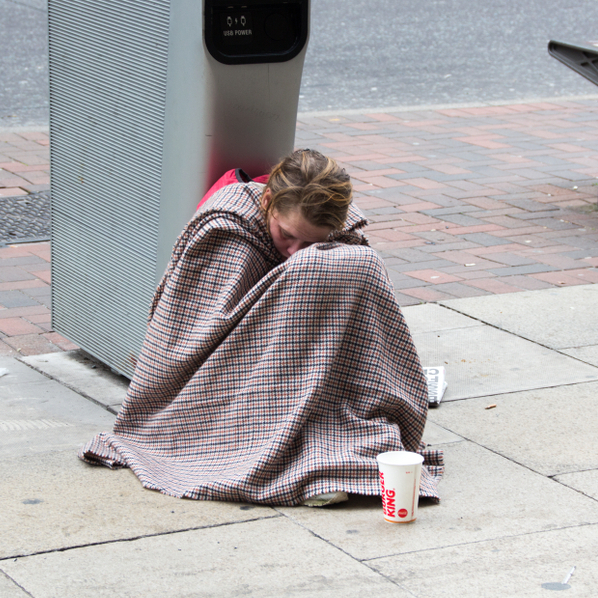By M. Regina Cram
Just moments into the discussion, I saw where it was going. A group of women conversed, and the topic turned to the homeless.
“You know what I don’t understand?” a woman began stridently. “Where are their families? Why should their care be left to government hand-outs and charities?”
“Yeah,” others agreed. “Don’t the homeless have families to care for them?”
I put my toe into the water. “Does anyone know a homeless person?” I asked.
All eyes turned with a why-would-I-be-acquainted-with-someone-like-that? look.
“Um, no,” several women answered. “Do you?”
“Yes,” I stated. “Many homeless people previously held jobs and had homes. Unfortunately, many people in our world live paycheck to paycheck. All it takes is a few bad choices or some really bad luck, and they’re on the streets.”
“But why don’t the families help?” someone asked again.
“Most do,” I replied. “If they didn’t, there’d be more homeless people on the streets. But sometimes, the families can no longer help. Let’s say the person chooses addiction or crime.”
Blank stares.
I dove in. “My younger sister spent 20 years cross-addicted to drugs and alcohol. My parents got her into treatment programs, AA, and counseling, but nothing helped. For a while, she lived with us until drug dealers began loitering around our home. We were actually enabling her destructive choices.”
“But you wouldn’t let her live on the streets, would you?” a woman asked. “It’s incredibly dangerous.”
“Let’s say a friend leaves his loaded pistol on your kitchen table,” I suggested by way of an answer. “Your kids can reach it. You would tell your friend to either secure the gun or leave it behind. If he refused, he’d have to leave your home. It would be his choice.”
“One day, my sister stopped by, tossing her purse onto the couch. My tiny daughter reached inside it. Do you know what was in it? A dirty hypodermic needle that had been shared by people with HIV.”
“That’s when we told my sister she couldn’t visit our home as long as she was using drugs. We’d never send her away hungry or lacking warm clothes, and when she was clean, she would again be welcome.”
“I loved my sister as myself. I would have done anything to help her, but you can’t help someone who doesn’t want to be helped.”
“Hmmm,” mused the woman beside me. “I hadn’t thought about it from that perspective.”
“Where is your sister now?” another woman asked.
“She finally broke free of the addiction, but by that point, she’d contracted HIV. This was in the mid-1980s when AIDS was a death sentence. When she died, however, my sister was surrounded by love. She knew beyond doubt that God forgives even the most stubborn sinner.”
We were quiet for a long moment. I added, “When you see a homeless person, remember that even if they have made poor choices, they should be treated with the same compassion that God offers us.”
M. Regina Cram is a published author and parishioner of SS. Isidore and Maria Parish.


